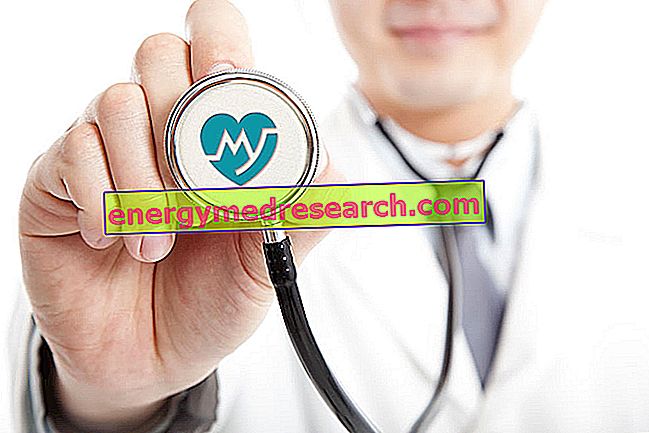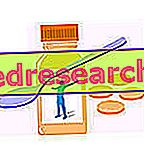Definition
Among the forms of anemia, the one commonly called "iron deficiency" is widespread, especially among infants, adolescents and women of childbearing age. Iron deficiency anemia is diagnosed when food iron is deficient in blood; this lack derives from the reduction of both the intake and absorption of this important mineral.
Causes
Iron deficiency anemia occurs when iron levels in the body are so low as to be insufficient to produce enough hemoglobin, useful for oxygen transport in tissues. Iron deficiency anemia can be favored by several elements: iron-deficient diet, hemorrhage, pregnancy, inability to absorb iron (a typical consequence of celiac disease, steatorrhea, chronic diarrhea and gastric-level surgery), heavy menstruation.
Symptoms
In general, iron deficiency anemia does not present with any symptoms; as the disease progresses, the prodromes tend to manifest more intensely, to the point of creating even rather serious consequences: altered mood, fatigue, increased heart rate, tingling of the limbs, loss of appetite, inflammation of the tongue, intestinal malabsorption, headache, cold hands and feet, splenomegaly, brittle nails, dizziness.
Diet and Nutrition
Information on iron deficiency anemia - drugs for the treatment of iron deficiency anemia is not intended to replace the direct relationship between health professional and patient. Always consult your doctor and / or specialist before taking Sideropenic Anemia - Medicines for the Treatment of Anemia Sideropenica.
drugs
The therapy aimed at the cure of iron deficiency anemia is called "martial" and is essentially based on the administration of ferrous salts, generally by oral route; in some cases, especially in patients with malabsorption in the context of iron deficiency anemia, it is preferable to take iron salts parenterally (intramuscularly or intravenously).
If the patient was malnourished, too thin or overweight, iron deficiency anemia could depend on a lack of diet: in this case, the first therapeutic measure is the correction of eating habits. If the patient suffering from iron deficiency anemia takes too much liquid during the day, it is advisable to reduce the intake.
Iron supplements: typical side effects given by the administration of iron supplements are digestive changes and associated disorders, such as abdominal cramps, diarrhea and heartburn. In order to avoid these unpleasant problems, it is recommended to start the administration with a low dosage, which will be gradually increased during therapy. Furthermore, even if fasting would be more effective for the absorption of the product, the supplement is usually taken with the meal or immediately after its end, given the gastro-intestinal effects it can cause.
- Ferrous sulphate (eg Ferrograd): antianemic par excellence, ferrous sulfate is widely used in martial therapy (iron deficiency anemia). Generally, the drug is available in the form of 595 mg active release controlled tablets. It is recommended to take 1 tablet a day, with water. The drug requires a medical prescription. To improve absorption, it is recommended to take the drug with vitamin C (eg with a glass of orange juice).
- Iron dextran (eg Iron ATI 100 solution for injection): indicatively, take 25-100 mg of active for intramuscular or intravenous use. Consult your doctor.
- Iron fumarate (eg Organic Iron): start therapy for iron deficiency anemia with 325 mg of oral drug once a day. Continue with maintenance therapy by taking 325 mg of active, three times a day. The posology for the treatment of iron deficiency anemia associated with renal diseases remains the same; it is recommended to have the patient undergo regular checks.
- Iron gluconate (eg Sidervim, Cromatonferro, Bioferal, Losferron): available in effervescent tablets and effervescent granules. The dosage of this drug for the treatment of iron deficiency anemia is similar to that of fumarate iron.
- Carbonyl iron (eg Icar): the dose for adults suffering from iron deficiency anemia is 50 mg of active, to be taken orally, three times a day.
- Iron saccharate (eg Ferrum Hausmann Orale, Venofer): available in vials for oral use, it is recommended to take the drug in the case of iron deficiency anemia at a dose of 2-3 vials (each containing 40 mg of iron), after meals. The dose should be reduced to 1-2 vials a day for the treatment of iron deficiency anemia in children. Alternatively, the drug can also be taken by slow intravenous injection (5 ml of solution contains 100 mg of active), lasting 2-5 minutes. Consult your doctor.
There are also multivitamin supplements, formulated with more vitamins and minerals: for example Multicentrum, Supradyn, Be-Total Plus.
Since iron supplements tend to cause constipation, it is possible to take laxatives, such as Glycerin (eg. Supplements of Glycerine San Pellegrino), liquid paraffin, peanut oil. Don't abuse.
Haemopoietic growth factors (HGF) : they are useful when iron deficiency anemia depends on renal failure or cancer. The drugs (eg formulated with Erythropoietin: Eprex, Epoxitin), stimulating the synthesis of red blood cells, rebalance the levels of iron in the blood.
Blood transfusions : in particularly severe cases, in which iron deficiency anemia cannot be cured with the drugs listed above, it is possible to proceed with a blood transfusion.
Secondary therapies for the prevention of anemia and to treat secondary symptoms
If neither the integration of iron nor the correction of eating habits were sufficient to cure iron deficiency anemia, the patient must undergo more thorough checks in order to identify the real cause that triggers iron deficiency in the blood. Depending on the etiological element, the doctor may prescribe antibiotics, oral contraceptives or recommend surgery:
1) Antibiotics : anemia may also be related to a peptic ulcer; therefore, the treatment of this disease could even balance iron levels in the blood.
- Metronidazole (eg Metronid, Deflamon): take one 250 mg tablet every 6 hours.
- Amoxicillin (eg. Augmentin, Klavux) belongs to the penicillins: it is a bactericide capable of inhibiting the synthesis of the cell wall of the bacterium ( Helicobacter pylori ), responsible for the peptic ulcer. Take one tablet orally (1 gram) 2-3 times a day for 14 days.
2) Oral contraceptives : in the case of particularly abundant menstruation, the risk of iron deficiency anemia increases considerably, given the conspicuous amount of blood lost due to hypermenorrhea. Oral contraceptives, regulating menstrual flow, could represent a possible therapeutic option.
- Ethinyl estradiol / Levonorgestrel (eg Loette, Microgynon, Miranova, Egogyn): these drugs are available in packs of 21-28 tablets: each tablet consists of 0.02 mg of ethinyl estradiol and 0.1 mg of levonorgestrel. The pharmacological treatment involves taking one tablet a day, for 21 days, possibly at about the same time each day, followed by a free one-week interval.
- Desogestrel / Ethinyl estradiol (eg Gracial, Novynette, Lucill, Dueva, Securgin): these are tablets coated with 20 mcg of ethnyl estradiol and 150 mcg of desogestrel. The dosage of these drugs reflects the one described above: the correct modality of taking these active ingredients generally guarantees a significant reduction in the menstrual flow. Do not forget, however, that in some patients the worsening of the prodromes can sometimes be observed: in this case, do not hesitate to contact the doctor. However, in the first three months of taking the pill a change of symptoms is very frequent, in a positive or negative sense.
3) Lastly, among the causes responsible for iron deficiency anemia there are also bleeding polyps, fibroids or uterine tumors: in this case, iron deficiency must be considered as a secondary symptom, useful for the diagnosis of the disease below. The surgical removal of the bleeding polyp or of the abnormal mass, in all probability cancels out the iron deficiency anemia.



